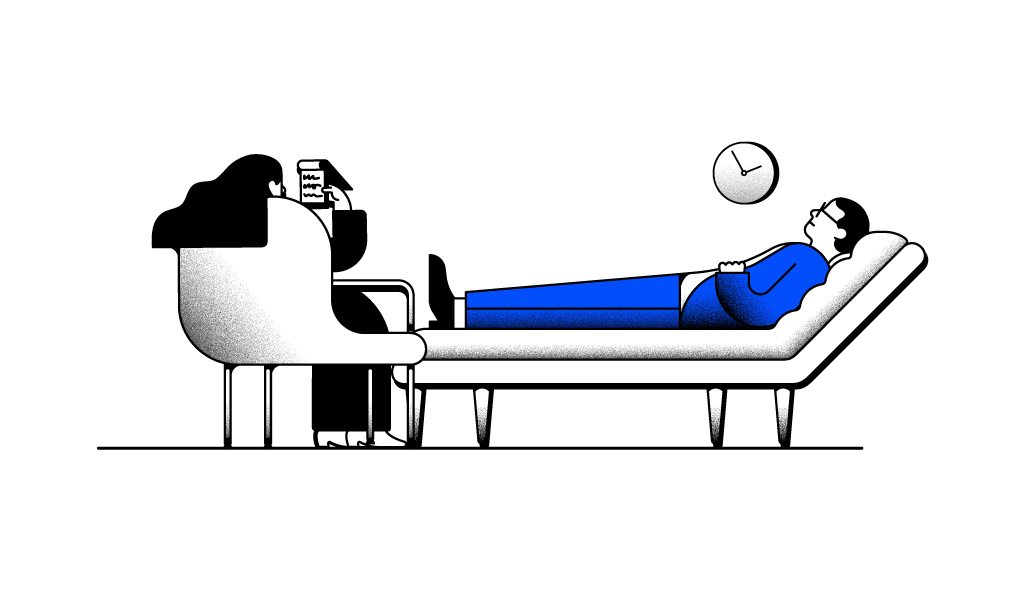How Dr. Bronner’s came to offer psychedelic therapy as a mental health benefit for employees

Family-owned soap company Dr. Bronner’s is offering a new health care benefit for its employees: ketamine-assisted therapy.
Since the company rolled out the policy in January, at least 30 employees have made use of the mental health benefit, which is about 10% of the company’s workforce, according to CEO David Bronner.
Ketamine is currently the only legal psychedelic prescription drug in the U.S. and in the medical world is widely used as an anesthetic. However, when prescribed appropriately, it can induce a state of sedation, which lowers anxiety and helps people feel more connected to their emotions and memories while they are receiving it. This can have long-lasting benefits for their mental health, experts claim.
To make this a workplace benefit, Dr. Bronner’s partnered with Enthea, a nonprofit health care organization that advocates for psychedelic-assisted therapies as highly effective treatments for a wide variety of mental health problems. Any of Dr. Bronner’s employees can apply to Enthea directly for this form of therapy, which in turn will connect them to a certified, credentialed ketamine-assisted therapy practitioner for a consultation.
“We have a pretty broad list of qualifying conditions,” Bronner said. “Anyone who self identifies as suffering, along with a screening with the provider, will get referred to an approved ketamine therapist.”
Typically, ketamine-assisted therapy is spread over a six-week period and individual sessions range from 90 minutes to three hours in length. To start, the participant discusses goals, intentions and concerns with a professional therapist. They’re given a comfortable chair or couch to sit on, headphones so they can listen to music and an eye mask. A trained clinician then gives a strictly controlled dose of ketamine, which they can choose to receive via injection or oral lozenge. After each dose, the participant then processes the emotions that surfaced during a session with the therapist.
All sessions occur on the employee’s own time, though they’re advised against driving immediately afterward. As with all prescribed drugs, there can be side effects — mild nausea, dizziness or drowsiness in this case — but they’re limited to the time span of the session and resolve quickly, according to Enthea, which schedules regular check-ins with patients after their treatments.
Psychedelic therapy as an employee benefit remains outside of the mainstream approach to mental health care, partly because there is a stigma around the concept, as these drugs do trigger hallucinations in larger doses and can also sometimes be used illegally for recreational purposes.
But Bronner said he believes this attitude is slowly shifting, and he hopes that more companies start to include this benefit in their health care programs.
“The whole culture right now is going through a big education and shift from the drug war…to understanding these are really healing medicines as long as the approach is with respect and care is taken with preparation and setting,” said Bronner. “There’s been an evolution.”
It’s a move that’s been welcomed by various medical professionals. “[Dr. Bronner’s] model uses the psychedelic framework and ketamine as an adjunct to help people have new insights and experiences and perspectives,” said Scott Shannon, a psychiatrist who co-founded the Board of Psychedelic Medicine and Therapies and founded the Wholeness Center in Colorado.
Having an employer cover treatment like this is especially beneficial because most insurance providers do not cover it. On its own, it could cost as much as $1,200 out-of-pocket for a two-hour session, according to Shannon.
“That means it’s available to those who can afford to pay,” said Shannon. “Outside of an employee-sponsored program like Dr. Bronner’s has, it’s not really very accessible. I’m glad and excited they’re providing this and stepping into this because it’s so needed. It’s the revolution in mental health care. I’d like to see more employers doing this.”
Dr. Bronner’s gets a monthly invoice from Enthea, which shapes up to cost about $3,000 or $4,000 per employee who partakes in a standard six-week session.
According to Enthea, at one ketamine clinic, between 75% and 80% of patients with depression feel better after therapy. “It’s not just going to be a magic bullet,” added Bronner. “But, it can be helpful.”
Dr. Bronner’s decision to add ketamine-assisted therapy as an employee benefit comes at a time when there is a spotlight on mental health needs within workforces. This focus has grown substantially over the past few years, especially with the pandemic. Employers have been working harder to support the mental health needs of their workers by offering company-wide retreats, access to meditation apps, traditional therapy and more.
And while psychedelic therapy as an employee benefit remains far from mainstream, many welcome it. “Clearly there is a need within the mental health space for more tools [like ketamine-assisted therapy,]” said Jamie Harvie, executive director at the Psychedelic Research and Training Institute. “The more options people have, the better off they are. Right now, the toolbox is a little bit empty,” he added.
But, taking a step back, what exactly prompted a natural-soap brand to offer such an unconventional, albeit progressive, benefit to its employees?
Bronner, whose grandfather started the company in 1948, told WorkLife he pitched the idea to the team (his family) after seeing people in his life benefit from ketamine-assisted therapy themselves. Bronner has been a staunch advocate for hemp and cannabis legalization for the past two decades and has long campaigned against the drug war.
He visited Amsterdam after college where he “met amazing people and had powerful psychedelic experiences,” which he said really opened his heart and mind and left him understanding his grandfather more. His grandfather always preached that “all the faith traditions at the heart are pointing at the same transcendent source,” recalled Bronner.
Bronner said he was impressed by the power of psychedelics and decided he wanted to make them available for any employee struggling with mental wellness who wants to try them.
“As I got engaged in the movement, I was really understanding how powerful these medicines are for people dealing with severe mental health challenges, whether it’s depression, PTSD or substance use disorders of all kinds,” said Bronner, who is also on the board of the Multidisciplinary Association for Psychedelic Studies.
Hearing personal testimonies about the impact of ketamine-assisted therapy, including from his own brother Michael Bronner, who is president of Dr. Bronner’s, is what really made him understand the impact the treatments can have on individuals.
For the Bronner family, making ketamine-assisted therapy available for their employees is just the start. In future, the company hopes to add other FDA-approved psychedelic-based therapies to the mental health program, including MDMA-assisted therapy and psilocybin-assisted therapy. A decision on whether MDMA-assisted therapy will become FDA-approved is expected by March 2024.
With these kinds of therapies, Bronner said he hopes that his company’s employees, and anyone else who decides to try them, feel like they can continue their lives with a new mindset.
“We’re here to serve and…if we’re not all prospering, not all healthy, not living a sustainable balance with nature then none of us are prospering, and that’s another huge power of psychedelic medicine — it’s power to connect us with the larger natural world,” added Bronner.


